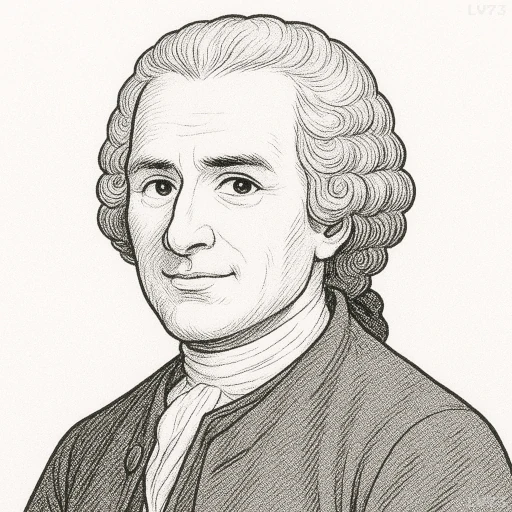“Whoever blushes is already guilty; true innocence is ashamed of nothing.”

- June 28, 1712 – July 2, 1778
- Born in Geneva
- Philosopher, political philosopher, writer, composer
table of contents
Quote
“Whoever blushes is already guilty; true innocence is ashamed of nothing.”
Explanation
In this quote, Jean-Jacques Rousseau makes a powerful distinction between innocence and guilt. He argues that the act of blushing, typically a response to embarrassment or shame, reveals an internal acknowledgment of wrongdoing or perceived fault. In Rousseau’s view, if someone blushes, they are already feeling guilty or self-conscious about something, even if they haven’t committed a transgression. True innocence, on the other hand, is free from these feelings of shame because it has nothing to hide or be embarrassed about. Rousseau suggests that genuine innocence is untouched by societal judgments or the internal conflict that leads to self-doubt or embarrassment, as it is aligned with the natural, uncorrupted state of being.
Historically, Rousseau’s reflection connects with his larger critique of society and its corrupting influence on human nature. He believed that in the state of nature, humans were inherently good and innocent, but as they entered civilized society, they became aware of societal norms and expectations that induced feelings of guilt or shame, even when their actions were not inherently wrong. Rousseau saw these emotional responses as a product of social conditioning rather than true moral failure, suggesting that innocence is clouded by the social constructs that lead to unnecessary self-awareness and moral questioning.
In modern contexts, Rousseau’s words are still relevant in discussions about self-consciousness, social pressure, and the way people feel about their actions in relation to societal standards. Many individuals today may experience feelings of guilt or shame because of external expectations or judgments, even in situations where no actual wrong has been committed. Rousseau’s quote encourages a return to authentic self-awareness, one that is free from the artificial constraints of societal pressure. It reminds us that genuine innocence involves living without the constant worry of how we are perceived, trusting that our actions align with our true values rather than the judgments of others.
Would you like to share your impressions or related stories about this quote in the comments section?




